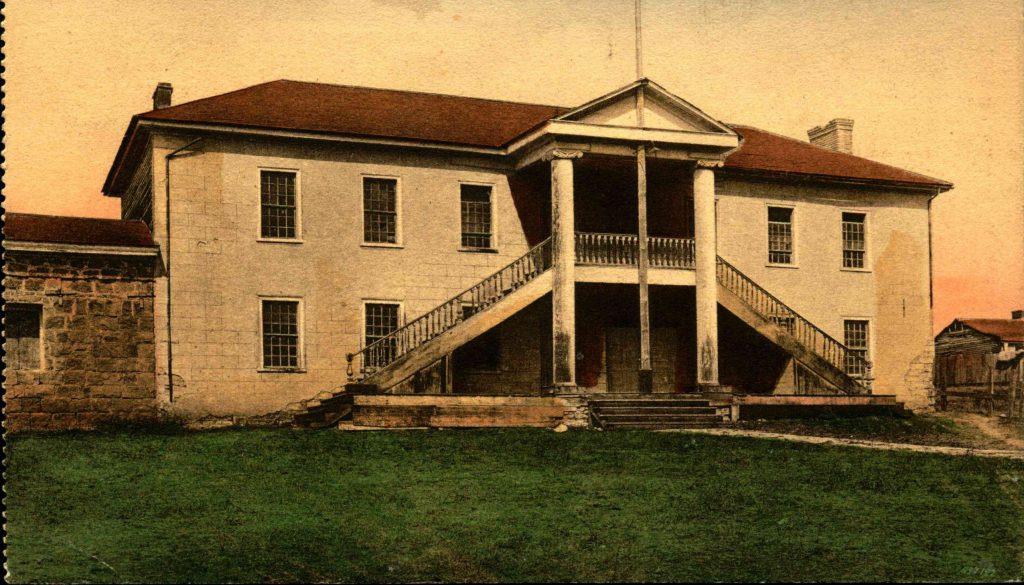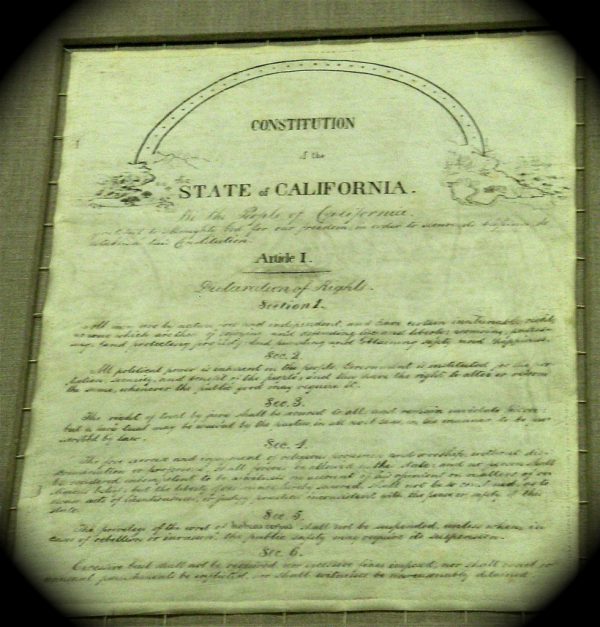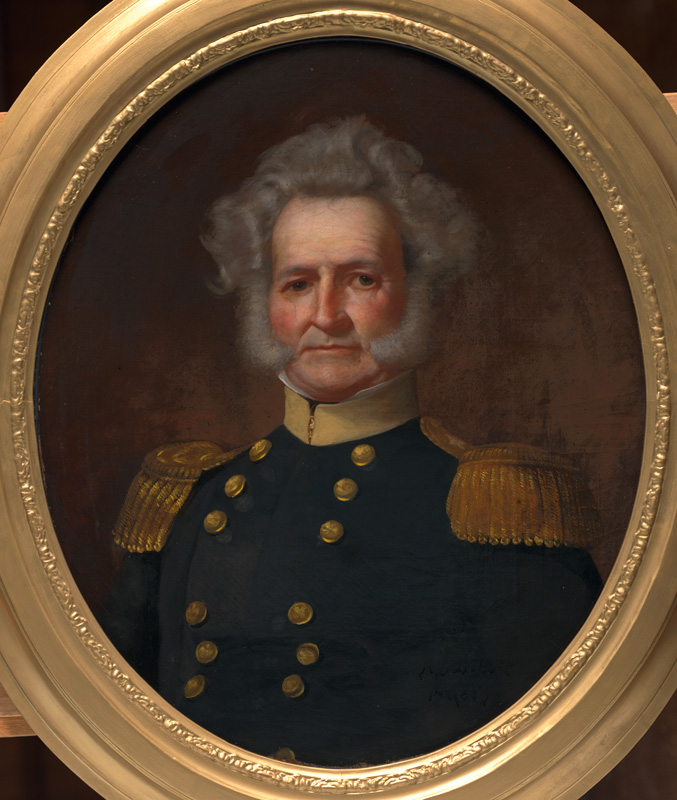Ten months before California becomes a state, voters overwhelmingly approve a constitution and elect a Legislature and a governor. There are some 107,000 persons of voting age in California but just 13,000 go to the polls. Of those, 12,061 back the constitution and 811 oppose. The vote comes 30 days after the 48 delegates complete their work at a constitutional convention held in Monterey’s Colton Hall.

Of the 48 delegates, half are under 35 and four are over 50. Two-thirds have been in California less than three years. Fourteen are lawyers, 12 are ranchers and nine are merchants. Eight are native Californians, two of whom are fluent in English. Ten hail from New York, seven from Missouri, four from Louisiana, three from Maryland, two from New Jersey, two from Virginia, two from Massachusetts and one each from Connecticut, Illinois, Indiana, Ohio, Pennsylvania, Texas and Wisconsin. Three delegates are citizens of other countries – Scotland, Ireland and France. Historian Hubert Howe Bancroft says:
“Never in the history of the world did a similar convention come together. They were there to form a state out of unorganized territory; out of territory only lately wrested from a subjugated people, who were allowed to assist in framing a constitution in conformity with the political views of the conquerors.”
Deliberations are conducted in Spanish and English and both Spanish and English copies of the constitution are created. There are debates and disagreements among the delegates — preserved at the State Archives — but after nearly a month and a half of wrangling, the delegates sign California’s first constitution on October 13, 1849. Among those signing are pioneer John Sutter and California’s second governor, John McDougal.
The constitution guarantees white male suffrage, forbids slavery, and allows married women to own separate property — possibly as an inducement to lure females to the male-dominated gold fields. In drafting the document, delegates are influenced by the constitutions of New York and Iowa.
The 1849 constitution is the state’s basis of government until 1879 when a new constitution is adopted.
After completing the constitution, the delegates – see list below – immediately go to the home of Brigadier General Bennet Riley, the military governor, to present him with the finished document. The action is partly a tip-of-the-hat to Riley who, without authorization from Congress or authority from his superiors, issues a proclamation on June 3, 1849 calling for an election of delegates to a convention that will either establish a “state constitution or plan for territorial government.” Riley issues a new proclamation declaring the November 13 election, which concludes:
“The people are now called upon to form a government for themselves and to designate such officers as they desire to make and execute the laws. That their choice may be wisely made, and that the government so organized may secure the permanent welfare and happiness of the people of the new state, is the sincere and earnest wish of the present executive, who, if the constitution be ratified, will, with pleasure, surrender his powers to whomsoever the people may designate as his successor.”
Here are the 48 signers of the constitution:
San Diego: Miguel de Pedrorena, Henry Hill.
Los Angeles: Stephen C. Foster, Jose Antonio Carrillo, Hugo Reid, Manuel Dominguez, Abel Stearns.
Santa Barbara: Pablo de la Guerra, Jacinto Rodriguez.
San Luis Obispo: Henry A. Tefft, Jose M. Covarrubias.
Monterey: Henry W. Halleck, Thomas O. Larkin, Charles T. Botts, Pacificus Ord, Lewis T. Dent.
San Jose: Joseph Aram, Kimball H. Dimmick, J. D. Hoppe, Antonio M. Pico, Elam Brown, Julian Hanks, Pedro Sansevaine.
Sonoma: Joel P. Walker, Robert Semple, Mariano G. Vallejo.
San Francisco: Edward Gilbert, Myron Norton, William M. Gwin, Joseph Hobson, William M. Steuart, Francis J. Lippitt, A. J. Kills, Rodman M. Price.
San Joaquin. Thomas Lloyd Vermule, O. M. Wozencraft, B. F. Moore, J. McHollingsworth, J. M. Jones, Benjamin S. Lippincott.
Sacramento: Jacob R. Snyder, Winfield S. Sherwood, L. W. Hastings, John McDougal, William L. Shannon, John A. Sutter, Elisha O. Crosby, M. M. McCarver.

